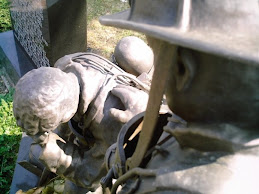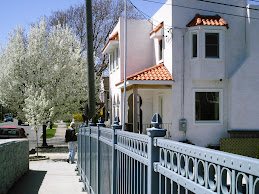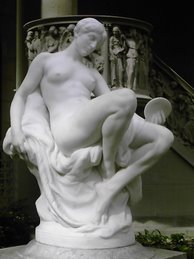By Joseph Kellard
In my post “With Freedom Comes Responsibility,” I wrote that when I read coverage of the 20th anniversary of the Berlin Wall’s fall in left-leaning newspapers, such as the New York Times, I found little mention of the actual oppression and suffering people endured under communist regimes. What was mentioned are the people who, after they were freed from communism’s chains, longed for the supposed security of those same regimes. Most importantly, there was no mention of the responsibility that comes along with freedom, particularly the need for individuals to think and live independently -- in short, to cultivate and exercise self-esteem.
On Wednesday, however, the Times addressed these issues in its report on the 20th anniversary of the Velvet Revolution in Prague in an article called “Celebrating Revolution With Roots in a Rumor”:
Once again, I read about those who favor life under communism:
“In a recent survey by the Czech Academy of Sciences, 81 percent of Czechs said they did not want a return of the old regime, even as a notable 14 percent said that life before 1989 was better.”
Note that what’s “notable” to the Times is that 14 percent. But, to the newspaper’s credit, the reporter found and quoted a freedom-lover who criticizes those 14-percenters:
“But others, like Mirek Kodym, 56, a ponytailed former security guard who published illegal political and literary tracts before 1989 and marched on Tuesday as he had 20years ago, said the Velvet Revolution had been a seminal moment in which a beleaguered nation had finally tasted freedom.
“‘Today you can be what you want to be and do what you want to do, and no one will interfere,’ he said. ‘The nostalgia for the past is a stupid thing.”
Of course, the Times had to mention Vaclav Havel, the leader of the Velvet Revolution that overthrew Communism in Czechoslovakia in 1989, who figured prominently in the article. Here’s the most important passage:
“[Havel] recently argued that nostalgia for the old regime reflected the condition of a people who had been imprisoned for so long that they did not know what to do with their newfound freedom.
“‘I have often compared it to being released from prison,’ he said. ‘In prison everything is laid out for you; you don’t have to decide on anything. They tell you when to get up, what to wear, everything is decided for you by others. If you live in this for years and are then suddenly released, freedom becomes a burden.”
So the Times finally, although indirectly, touched on the issue of freedom and responsibility, those fundamental issues that the 14 percenters and the Times would otherwise rather evade.
Wednesday, November 18, 2009
Subscribe to:
Post Comments (Atom)































+-+June+2009.jpg)











No comments:
Post a Comment